- From the Editors
- The Foreign Policies of Sanders, Trump, and Clinton: America and the World in 2016 and Beyond, Joanne Landy
- The Contemporary Crisis of the American Ideology, Dan La Botz
- Welfare Reform and the Ghost of the “Welfare Queen”, Juan M. Floyd-Thomas
- Kiddin’ on the Square: The Politics and Poetics of Mose Allison’s Blues, David Cochran
- The Neo-Colonization of Central America, Jeff Abbott
- The Struggle Against Syriza’s Austerity Program, Aaron Amaral
- “The Hammer Blow of the Revolution”: Rosa Luxemburg’s Critique of Bourgeois Democracy, Michael Löwy
- Feminisms of the Left, Nancy Holmstrom
- My Experience with C.L.R. James and Correspondence, Reginald Wilson
- Environment
- Theses on Saving the Planet, Richard Smith
- Food Justice + Food Sovereignty: Can the U.S. Food Justice Movement Join the Global Movement?, Nancy Romer and Linda Farthing
- Obituaries
- Bogdan Denitch, Jason Schulman
- Art Lipow, Bogdan Denitch
- Words & Pictures
- Donald Rooum, Kent Worcester
- Reviews
- After Bernie—Party Time?, David Finkel, review of Martin, Empowering Progressive Third Parties in the United States: Defeating Duopoly, Advancing Democracy
- Death, Politics, and the Anthropocene, Jamie Munro, review of Scranton, Learning to Die in the Anthropocene
- Blueprints for the Future, Jason Schulman, review of Campbell, Designing Socialism: Visions, Projections, Models, and Hahnel, Of the People, By the People: The Case for a Participatory Economy
- Syria Is Burning, But What Fuels the Fire?, Mike Noonan, review of Griffin, Islamic State: Rewriting History and Yassin-Kassab & Al-Shami, Burning Country: Syrians in Revolution and War
- Secular Stagnation and Rosa Luxemburg’s Breakdown Theory, Barry Finger, review of Hudis, The Complete Works of Rosa Luxemburg, Volume I, Economic Writings 1; and Hudis and Le Blanc, The Complete Works of Rosa Luxemburg, Volume II, Economic Writings 2
- Memory and the Movies, Michael Löwy, review of Hedges, World Cinema and Cultural Memory
- Homage To E.P. Thompson, Joe White, review of Winslow, E.P. Thompson and the Making of the New Left: Essays and Polemics
- Democracy, From King Hammurabi’s Time to Tomorrow, Stephanie J. Smith, review of Kaplan, Democracy: A World History
- Radical America, Paul Heideman, review of Brick and Phelps, Radicals in America: The U.S. Left Since the Second World War
- Workers’ Stories of Their Strikes in China, Dan La Botz, review of Hao Ren, China on Strike: Narratives of Workers’ Resistance
New Politics Vol. XVI No. 1, Whole Number 61
In this issue:
From the Editors
We have had an extraordinary presidential primary in 2016: in addition to the establishment candidate, Hillary Clinton, we have an authoritarian demagogue, Donald Trump, who has unleashed a reactionary rage which harkens back to fascism, and another, Bernie Sanders, who calls himself a democratic socialist.
The Foreign Policies of Sanders, Trump, and Clinton

The world today is faced with crises on virtually every front, and any assessment of the foreign policy positions of the two major parties’ 2016 presidential candidates must measure how well they respond to these crises.
The Contemporary Crisis of the American Ideology

Surveying the political scene in America, we are now witnessing the shattering of the last remnants of the American ideology that has maintained itself—despite strains—for almost 70 years. The ideas that justified the American economic and political system in the minds of most of our citizens throughout that long period came under stress during earlier storms—from the 1950s to the 1970s in particular—and a few beams and joists cracked but did not give way. Today the manifold crises of capitalism mean that the entire existing intellectual structure of American capitalism is breaking up. And because of the role that the U.S. capitalist class plays in the world, this represents a crisis of world capitalist leadership and legitimacy. The question then arises: What will the country’s rulers attempt to put in its place, and what alternative explanation will we on the left and in the labor movement be able to offer to the country’s workers?
Welfare Reform and the Ghost of the “Welfare Queen”

Like a spectral apparition from a Shakespeare play or an M. Night Shyamalan film, the dreaded ghost of welfare reform is making a ghoulish comeback on Capitol Hill just in time for its twentieth anniversary.
Kiddin’ on the Square

In October 1969, pianist/ singer/composer Mose Allison recorded “Monsters of the Id.” At a time when recent history had witnessed a police riot at the 1968 Democratic Party Convention, the police crackdown on protesters at Berkeley’s People’s Park, and popular backlash against anti-war, New Left, counter-culture, and Black Power sentiment, Allison began by warning that the title characters no longer remain hidden, but have come out in full view. To the accompaniment of a slightly discordant horn section, Allison—singing in his characteristic style, with its idiosyncratic pauses and accents—spins a variety of often ghoulish metaphors that remain just as timely in today’s era of Tea Party, torture reports, Stand Your Ground, and Donald Trump: “They’re sprouting through the cracks … They’re deputizing maniacs / Creatures from the swamp rewrite their own Mein Kampf.”
The Neo-colonization of Central America
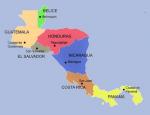
The colonization of Latin America never ended, it merely changed forms. Today this conquest continues, with transnational companies driving neo-colonization grounded in the continued exploitation of natural resources. This is nowhere more true than in Central America. The force of neo-colonization is strengthened by free-trade agreements and development plans that guarantee a company’s right to investment above the rights of the citizenry. Meanwhile, the indigenous populations face renewed dispossession and eviction to make way for global capital’s conquest.
The Struggle Against Syriza’s Austerity Program
 The month of May witnessed the second round of massive general strikes to hit Greece in 2016. Mobilizations on May Day were followed by four days of strikes in the lead-up to the Syriza government passing its austerity pension bill.
The month of May witnessed the second round of massive general strikes to hit Greece in 2016. Mobilizations on May Day were followed by four days of strikes in the lead-up to the Syriza government passing its austerity pension bill.
“The Hammer Blow of the Revolution”
 Rosa Luxemburg’s defense of socialist democracy and her critique of the Bolsheviks in her pamphlet The Russian Revolution (1918) are well known. Less well known and often forgotten is her critique of bourgeois democracy, its limits, its contradictions, and its narrow and partial character. We propose to examine this critical line of thought in some of her political writings without any pretentions to completeness.
Rosa Luxemburg’s defense of socialist democracy and her critique of the Bolsheviks in her pamphlet The Russian Revolution (1918) are well known. Less well known and often forgotten is her critique of bourgeois democracy, its limits, its contradictions, and its narrow and partial character. We propose to examine this critical line of thought in some of her political writings without any pretentions to completeness.
My Experience with C.L.R. James and Correspondence

Wilson’s recollections of his association with Correspondence newsletter that was published in Detroit, Michigan, from 1959 to 1967, and of C.L.R. James.
Theses on Saving the Planet
 I don’t need to tell you we face an existential threat. Scientists tell us we face a “climate emergency.” Last year was the hottest year ever recorded, beating 2014, which beat 2012. We break new records every year. The fourteen hottest years ever recorded have been recorded since 2000. January and February temperatures were torrid.
I don’t need to tell you we face an existential threat. Scientists tell us we face a “climate emergency.” Last year was the hottest year ever recorded, beating 2014, which beat 2012. We break new records every year. The fourteen hottest years ever recorded have been recorded since 2000. January and February temperatures were torrid.
Food Justice + Food Sovereignty
In the United States today, there is a fresh opening for progressive alliances. The various movements—Black Lives Matter, the Fight for $15, climate change, immigrant rights, LGBT rights, Bernie—have different roots, structures, and foci, but they share a recognition that we are being crushed by the newest form of capitalism—as they call it in Latin America, “capitalismo salvaje”1 (savage capitalism)—and that we must stand up to it with all our might, with all our people.
Bogdan Denitch
 Perhaps ironically, shortly after writing the following memorial for Arthur Lipow, longtime New Politics sponsor Bogdan Denitch died on March 28 at the age of 86.
Perhaps ironically, shortly after writing the following memorial for Arthur Lipow, longtime New Politics sponsor Bogdan Denitch died on March 28 at the age of 86.
Art Lipow
 The democratic left is poorer today for the loss of a longtime active comrade. Arthur Lipow, a former member of the editorial board of New Politics, died this year on January 6, aged 81, his wife Gretchen by his side. Arthur grew up in Southern California and attended high school in Pasadena. He received his BA in sociology from UCLA in 1955.
The democratic left is poorer today for the loss of a longtime active comrade. Arthur Lipow, a former member of the editorial board of New Politics, died this year on January 6, aged 81, his wife Gretchen by his side. Arthur grew up in Southern California and attended high school in Pasadena. He received his BA in sociology from UCLA in 1955.
Donald Rooum
 English anarchism has produced a number of fine cartoonists, including Clifford Harper, John Olday, Paul Petard, and, arguably, the artist Hunt Emerson and the writer Alan Moore.
English anarchism has produced a number of fine cartoonists, including Clifford Harper, John Olday, Paul Petard, and, arguably, the artist Hunt Emerson and the writer Alan Moore.
After Bernie—Party Time?
 Bernie Sanders’ presidential campaign has rocketed across the political landscape in this most abnormal of election seasons—an independent, self-defined democratic socialist running in the Democratic primary contest.
Bernie Sanders’ presidential campaign has rocketed across the political landscape in this most abnormal of election seasons—an independent, self-defined democratic socialist running in the Democratic primary contest.
Death, Politics, and the Anthropocene
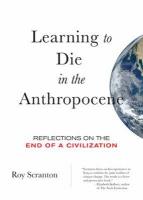 Rather than start his book about climate change with a solitary man contemplating a streambed run dry or taking in the eternal wonders of an old-growth forest, Roy Scranton begins Learning to Die in the Anthropocene in occupied Iraq in 2003, where Scranton served as a private in the U.S. Army.
Rather than start his book about climate change with a solitary man contemplating a streambed run dry or taking in the eternal wonders of an old-growth forest, Roy Scranton begins Learning to Die in the Anthropocene in occupied Iraq in 2003, where Scranton served as a private in the U.S. Army.
Blueprints for the Future
Designing Socialism is a complete reprint, as an e-book, of the special April 2012 issue of the American academic Marxist journal Science & Society. It continues that publication’s tradition of providing, as stated by its usual editor David Laibman, “a major worldwide pulse-taking of the state of play in theoretical socialism” every April of the years ending in “2” in every decade (Campbell, ed., 7).
Syria Is Burning, But What Fuels the Fire?
Syria is the focus of the world’s attention. However, the closer the lens is focused, the more the picture seems obscured. Is what we are seeing a revolution? Is it a proxy war by international forces? Or, especially now with the emergence of the Islamic State, is this Islamic authoritarianism asserting itself? These questions are vital for anyone trying to piece together a picture of what is happening and especially for activists trying to understand what is at stake in Syria and what attitude to take toward events as they unfold.
Secular Stagnation and Rosa Luxemburg’s Breakdown Theory
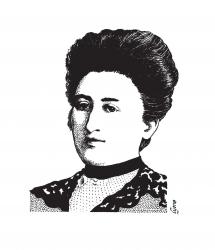 The editors of these volumes have provided an invaluable service, bringing renewed attention to the highly original and enduringly contentious critique of Capital that arose from one of the most universally revered figures of the revolutionary movement.
The editors of these volumes have provided an invaluable service, bringing renewed attention to the highly original and enduringly contentious critique of Capital that arose from one of the most universally revered figures of the revolutionary movement.
Memory and the Movies
This book is a fascinating incursion into the multiple oppositional uses of memory in world cinema. It shows, in a lively and insightful way, how movies bring the memory of past struggles forward into the present, to serve as an inspiration for the future.
Inez Hedges distinguishes eight types of cultural cinematographic memory, which correspond to the eight chapters of the book:
Homage to E.P. Thompson
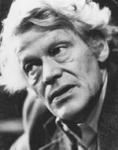 E.P. Thompson (1924–1993) wore several hats during his life. His magnum opus as a historian was The Making of the English Working Class, one of the greatest history books written in the twentieth century in any language. He fought tirelessly for nuclear disarmament in the 1980s, which almost surely took years off his life.
E.P. Thompson (1924–1993) wore several hats during his life. His magnum opus as a historian was The Making of the English Working Class, one of the greatest history books written in the twentieth century in any language. He fought tirelessly for nuclear disarmament in the 1980s, which almost surely took years off his life.
Democracy, from King Hammurabi’s Time to Tomorrow
 Temma Kaplan’s Democracy: A World History arrives at a timely moment. With presidential candidates and U.S. officials alike evoking the term “democracy” as a justification for political movements or a pretense for extraterritorial violence, Kaplan’s history of democracy offers a sorely needed study at an opportune time.
Temma Kaplan’s Democracy: A World History arrives at a timely moment. With presidential candidates and U.S. officials alike evoking the term “democracy” as a justification for political movements or a pretense for extraterritorial violence, Kaplan’s history of democracy offers a sorely needed study at an opportune time.
Radical America
 The American left is today confronted with a situation it has not dealt with in some time—something approaching broader political relevance. From the rise of Occupy to Black Lives Matter to the Bernie Sanders campaign, movements of the left are having a sustained impact on American politics that they have not had for decades.
The American left is today confronted with a situation it has not dealt with in some time—something approaching broader political relevance. From the rise of Occupy to Black Lives Matter to the Bernie Sanders campaign, movements of the left are having a sustained impact on American politics that they have not had for decades.
Workers’ Stories of their Strikes in China
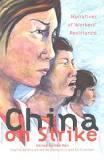 China has the world’s largest population, about 1.4 billion people, with a working age population of about 950 million, hundreds of millions of them wage laborers. Most of us know little about the Chinese workers or the recent workers’ movement that has developed so rapidly, especially since the 1990s.
China has the world’s largest population, about 1.4 billion people, with a working age population of about 950 million, hundreds of millions of them wage laborers. Most of us know little about the Chinese workers or the recent workers’ movement that has developed so rapidly, especially since the 1990s.
Feminisms of the Left
 This essay was originally a talk at the conference held at the New School for Social Research on April 21-22, 2016.
This essay was originally a talk at the conference held at the New School for Social Research on April 21-22, 2016.

